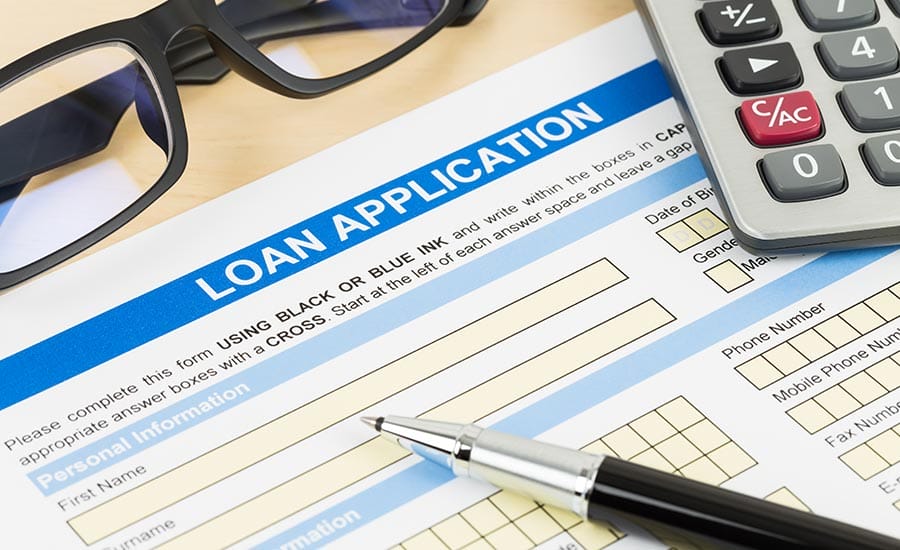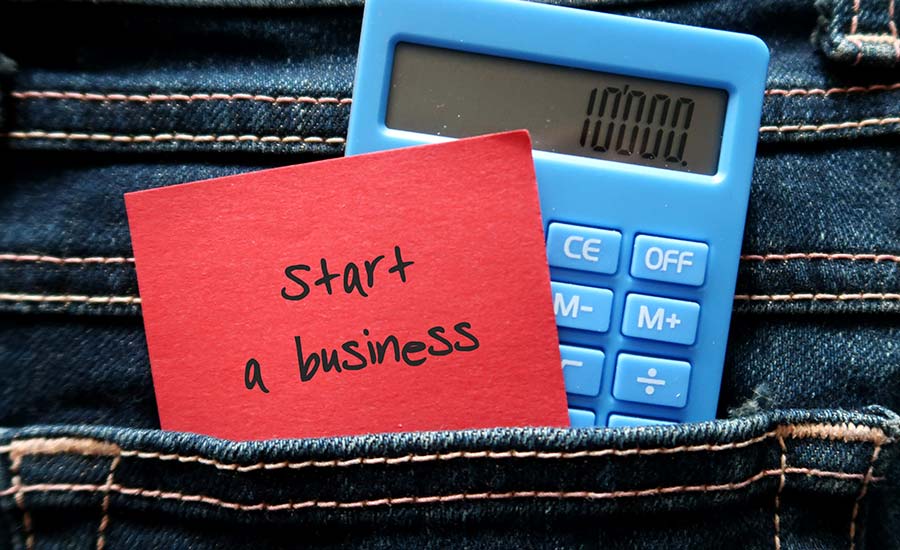How To Get a Small Business Loan: A Step-By-Step Guide

Small business loans can provide vital financial support, whether you’re launching a new venture or sustaining current operations.
We’ll cover loan types, guide you through each step of how to get a small business loan and explain how to apply for a small business loan at Capixa — an investment capital funding company.
Types of Small Business Loans
A small business loan, whether secured or unsecured, can provide support for growth and stability within your company.
There are several types of loans to consider:
- Term loans: A lump sum you borrow and repay in fixed monthly installments.
- SBA loans: Loans guaranteed by the Small Business Administration, known for their favorable terms.
- Line of credit: A flexible financing option where a financial institution, such as a bank or a lending firm, provides businesses with access to a predetermined amount of capital.
- Equipment financing: Specific loans intended to help you purchase equipment, where the equipment itself acts as collateral.
- Invoice factoring: Selling your outstanding invoices to a lender to get immediate cash and manage cash flow.
- Microloans: Smaller loans, often provided by non-profit organizations, designed to cater to businesses with smaller capital requirements.
While not a conventional load, a merchant cash advance (MCA) also stands out in the realm of small business financing. It provides businesses with an upfront sum of capital in exchange for a percentage of their daily or weekly revenue, plus a fee.

How To Get a Small Business Loan in 7 Steps
The process of applying for a small business loan starts before the application.
Here’s a step-by-step guide on how to get a loan for your business:
Create A Business Plan
A compelling business plan serves not just as a roadmap for your enterprise, but also as a persuasive tool to entice potential lenders and investors.
The key components to include in your business plan are:
- Executive summary
- Business description
- Market analysis
- Organization and management plan
- Product or service line
- Sales and marketing plan
- Funding request
- Financial projections
Determine The Loan Amount
Determining the correct loan amount necessitates a careful balance between what you need and what you can afford. The objective here is to secure enough capital to facilitate your business objectives while ensuring that the repayment, inclusive of any interest, remains within manageable bounds.
For example, let’s say that you’re running a small bakery and you need a loan to open a new location.
The following calculations should be included to determine your loan amount:
- New location setup: $20,000
- Additional staff: $30,000 per year
- Additional inventory: $10,000 per year
- Miscellaneous and unexpected costs: $5,000
- Total loan requirement: $65,000
Let’s say your current profits allow for a safe loan repayment capacity of $2,000 per month.
The loan terms are:
- Loan amount: $65,000
- Interest rate: 5% annually
- Loan period: 5 years
You can calculate the monthly repayment using a simple loan calculator or formula to determine that you’ll be paying around $1,226 per month, which is within your $2,000 per month repayment capacity.
Check Your Credit Score
Your credit score is a critical factor that lenders take into consideration during the approval process.
Your credit score reflects your history and behavior as a borrower, impacting a lender’s perception and willingness to extend credit to your business.
Your credit score in securing a business loan plays a role in:
- Risk assessment: Lenders use your credit score to evaluate the risk associated with lending money to you or your business. A higher score generally equates to lower risk.
- Interest rates: Your credit score may influence the interest rate offered on your loan. A higher score may help you secure loans at more favorable terms and rates.
- Loan amount and terms: A strong credit score can positively affect the amount you can borrow and the repayment terms of your loan.
Organize Your Financial Documents
Make sure your financial documents are organized, accurate, and readily available to facilitate a smoother loan application process.
Key financial documents to prepare include:
- Profit and loss statements
- Balance sheets
- Cash flow statements
- Tax returns
- Bank statements
- Accounts receivable and payable (outstanding invoices and bills)
The number and the type of financial documents you need to provide will vary based on loan providers.
Talk To a Financial Advisor
A financial advisor can help make sure you are approaching the borrowing process with clarity and strategy, to navigate financial planning and regulatory compliance effectively.
Financial advisors can help you with:
- Strategic planning: Advisors offer valuable insights to enhance loan approval odds and ensure financial sustainability.
- Risk mitigation: Advisors identify and manage financial risks related to obtaining a loan.
- Regulatory compliance: Advisors ensure your business follows all relevant financial laws and standards.
- Loan fit: Advisors make sure the loan type and loan amount match your business’s needs and capacities.
Choose A Loan Type
To choose the right loan type, you need to carefully assess your business’s financial status, establish a clear purpose for the loan, and create a strategic approach to managing the repayment and utilization of the funds.
To determine the loan type that’s right for you, consider:
- The purpose of the loan
- Your repayment capacity
- The loan amount
- The loan costs
- The loan term
- The speed of funding
- Collateral
Apply For and Close the Loan
To apply for and get a small business loan, fill out an application with your chosen lender and provide the documents needed, such as financial reports and your business plan.
Once your loan is approved, review the terms carefully to make sure you understand the interest rate, repayment conditions, and any additional requirements. After securing the funds, follow the repayment schedule and use the loan for its intended purpose to maintain financial stability and a positive relationship with the lender for future interactions.
When To Apply for a Small Business Loan
The right time to apply for a small business loan depends on several factors, including your business’s financial situation, plans for the future and the market conditions.
It might be a good time to apply for a loan to start a small business or expand your business if any of the following apply:
- Expansion operations: Apply when seeking to grow operations through new locations, staff, or technology.
- Positive financial health: Leverage periods of stability and growth, using strong credit scores and healthy revenues to appeal to lenders.
- Financial challenges: Consider loans when encountering financial hiccups, such as equipment failures or unexpected expenditures, to sustain operations. In the last year, the majority of small business loans were provided as a result of trying to keep up with operating expenses.
- Seasonal adjustments: Utilize loans to bridge revenue gaps during off-peak seasons or to capitalize on peak periods.
- Favorable market conditions: Explore external factors like low-interest rates or special loan schemes that might offer favorable terms.
- Unplanned opportunities: Leverage loans to seize unexpected opportunities that align with your business model and projections.

Apply For a Small Business Loan at Capixa
Capixa is an investment capital funding company that takes a human approach to business lending, by understanding your needs to find the best small business loan solution.
We don’t limit ourselves by industry, as we strive to provide an equal chance to every business owner who is interested in a small business loan.
Our compassionate team of business builders, problem solvers, and clever investors help businesses get small business loans quickly, securely, and on their own terms.
If you’re running a small business and you’re seeking support, Capixa offers:
- Custom solutions: Our service extends beyond transactions; we offer loan solutions that are designed to align with your business’s needs, ensuring your financial endeavors are both strategic and beneficial.
- Friendly service: At our core, we value building enduring relationships with our clients. You are not just a customer to us, you’re a partner whose growth and success we are genuinely invested in, fostering a friendly and supportive financial journey.
- An efficient approach: Our approach is honed to be precisely efficient, ensuring your loan application process is streamlined, straightforward, and devoid of unnecessary complications.
- Transparent communication: Your trust is important to us, and we safeguard it with a commitment to clear and transparent communication.
To apply for a small business loan at Capixa, fill out our form and our team will contact you shortly.
FAQs About Getting a Small Business Loan
Where can I submit an application for a small business loan?
You can apply for a small business loan at traditional banks, credit unions, government programs or online lenders.
Online lenders such as Capixa offer convenient and potentially more lenient application processes, as we have different qualification criteria, such as lower credit score thresholds and reduced documentation, making it easier for newer or smaller businesses to acquire funding.
What information do I need to apply for a small business loan?
In most cases, you will only need to provide basic information about yourself and your business, such as:
- Social Security number of business owner(s)
- Business Tax ID
- Last three months of business bank statements
- Business start date
How hard is it to get a small business loan?
The difficulty of obtaining a small business loan can depend on various factors, such as:
- Business health: Lenders assess your business’s financial health, including cash flow and profitability, to determine approval.
- Credit score: Your personal and business credit scores impact your risk and reliability.
- Lender’s criteria: Different lenders have diverse criteria and may focus on specific industries or business sizes.
- Market conditions: Economic and market conditions can also influence a lender’s willingness to disburse loans.
What are the terms of a small business loan?
Small business loan terms can vary widely but generally include:
- Loan amount: The principal amount borrowed
- Interest rate: The percentage of the loan amount charged for borrowing the funds
- Repayment schedule: Details regarding payment frequency and amount
- Loan term: The duration over which the loan will be repaid
- Collateral: Assets that may be required to secure the loan
- Additional fees: Including origination, late payment, or prepayment fees
- Usage stipulations: Conditions regarding how the loan may be utilized
How much can you borrow with a small business loan?
Small business loans from traditional banks typically range from $50,000 to $500,000. However, it’s possible to obtain smaller loans, especially for well-qualified borrowers or through specific programs tailored for small businesses.
The amount you can borrow with a small business loan also varies depending on factors such as:
Business financials: Your business’s revenue, profitability, and financial projections
Loan purpose: The intended use of the loan funds
Lender policies: Different lenders have various maximum and minimum loan amounts
Credit history: Strong credit profiles may access larger loan amounts
Each lender will have specific criteria, offerings, and loan products.

![What Is a Small Business Loan [How it Works + Types of Loans]](https://capixa.com/wp-content/uploads/2024/09/what-is-a-small-business-loan-hero-image.jpg)
